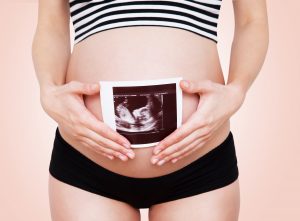
9Jan
EDCs
TileEndocrine Disrupting Chemicals (EDCs) are a „global threat“, according to WHO. They can alter the hormone system and are linked to various diseases such as breast cancer, testicular cancer, infertility, reproductive disorders, obesity, diabetes, neurological disorders. Especially pregnant women and the fetus are most affected by EDCs. EDCs are everywhere, as pesticides residues in the food we eat and in most of the products we use everyday. HEJSupport advocates for EDC-free products and food. HEJSupport is the co-chair of the IPEN EDC working group, and active member of the EU NGO coalition EDC-free Europe.
 Submission to the EU Commission on EDCs in Food Contact Materials 05.03.2024 - HEJSupport took the opportunity to submit feedback to the EU consultations on the restrictions on bisphenol A (BPA) and other bisphenols in food contact materials (FCMs). It is very important that the EU will cover all bisphenols in their legislation on FCMs and not just a handful, to protect human health and the environment. ... Read More
Submission to the EU Commission on EDCs in Food Contact Materials 05.03.2024 - HEJSupport took the opportunity to submit feedback to the EU consultations on the restrictions on bisphenol A (BPA) and other bisphenols in food contact materials (FCMs). It is very important that the EU will cover all bisphenols in their legislation on FCMs and not just a handful, to protect human health and the environment. ... Read More Joint NGO letter to MEPs to vote for toxic-free toys 05.03.2024 - Toys should not contain hazardous chemicals. A ban of PFAS and bisphenols is urgently needed. ... Read More
Joint NGO letter to MEPs to vote for toxic-free toys 05.03.2024 - Toys should not contain hazardous chemicals. A ban of PFAS and bisphenols is urgently needed. ... Read More Germany published five-point plan on EDCs 01.12.2023 - A new five-point EDC plan covers five areas of action. Another document with a concret action plan was announced. ... Read More
Germany published five-point plan on EDCs 01.12.2023 - A new five-point EDC plan covers five areas of action. Another document with a concret action plan was announced. ... Read More First Map of Canadian Airports and Military Bases Contaminated by PFAS ‘Forever Chemicals’ 23.03.2023 - Military bases and airports are a significant cause of water contamination because of the use of aqueous film-forming firefighting foams containing PFAS ... Read More
First Map of Canadian Airports and Military Bases Contaminated by PFAS ‘Forever Chemicals’ 23.03.2023 - Military bases and airports are a significant cause of water contamination because of the use of aqueous film-forming firefighting foams containing PFAS ... Read More Online event: Why we need an EDC action plan in Germany 09.03.2023 - HEJSupport, PAN Germany and WECF conducted an online event with high-level speakers on the need of an ambitious EDC action plan in Germany. ... Read More
Online event: Why we need an EDC action plan in Germany 09.03.2023 - HEJSupport, PAN Germany and WECF conducted an online event with high-level speakers on the need of an ambitious EDC action plan in Germany. ... Read More The way toward a global solution to the identification of EDCs 27.09.2022 - HEJSupport new publication "EDCs in GHS: toward a global solution to the identification of EDCs" highlights the importance of developing the EDC criteria for GHS and elaborates on the ideas of moving forward. ... Read More
The way toward a global solution to the identification of EDCs 27.09.2022 - HEJSupport new publication "EDCs in GHS: toward a global solution to the identification of EDCs" highlights the importance of developing the EDC criteria for GHS and elaborates on the ideas of moving forward. ... Read More The PFAS problem, the ‘Forever Chemicals’, is not on the public radar in Canada. But it should be. 20.11.2021 - Most Canadians have no idea they probably have PFAS chemicals (Per- and Polyfluoroalkly Substances) in their bodies, nor understand how they got exposed. ... Read More
The PFAS problem, the ‘Forever Chemicals’, is not on the public radar in Canada. But it should be. 20.11.2021 - Most Canadians have no idea they probably have PFAS chemicals (Per- and Polyfluoroalkly Substances) in their bodies, nor understand how they got exposed. ... Read More NGO Comments on the draft of Canada’s Great Lakes Strategy for PFOS, PFOA and LC-PFCAs Risk Management 27.05.2021 - NGOs support the importance of implementing risk mitigation and management actions aimed at reducing PFAS chemicals in the Great Lakes waters, wildlife, and people. ... Read More
NGO Comments on the draft of Canada’s Great Lakes Strategy for PFOS, PFOA and LC-PFCAs Risk Management 27.05.2021 - NGOs support the importance of implementing risk mitigation and management actions aimed at reducing PFAS chemicals in the Great Lakes waters, wildlife, and people. ... Read More The problem of endocrine-disrupting chemical exposure during the COVID-19 pandemic 13.02.2021 - During the period of prevention of the spread of viral infections, in particular the new coronavirus infection COVID-19 Use mainly personal protective equipment (PPE) that does not increase the likelihood of exposure to EDCs. Fabric reusable masks are best for this purpose. ... Read More
The problem of endocrine-disrupting chemical exposure during the COVID-19 pandemic 13.02.2021 - During the period of prevention of the spread of viral infections, in particular the new coronavirus infection COVID-19 Use mainly personal protective equipment (PPE) that does not increase the likelihood of exposure to EDCs. Fabric reusable masks are best for this purpose. ... Read More New on-line course on SAICM Issues of Concern 21.12.2020 - With this course we hope to expand the discussion about the future of SAICM beyond 2020 and involve many people and organizations from around the world into the conversation. ... Read More
New on-line course on SAICM Issues of Concern 21.12.2020 - With this course we hope to expand the discussion about the future of SAICM beyond 2020 and involve many people and organizations from around the world into the conversation. ... Read More Toxic Additives in Plastics: Hidden Health Hazards Linked to Common Plastic Products 30.09.2020 - Even small amounts of toxic plastic chemical additives can result in cancers, damage to immune and reproductive systems, impaired intellectual functions, and/or developmental delays. ... Read More
Toxic Additives in Plastics: Hidden Health Hazards Linked to Common Plastic Products 30.09.2020 - Even small amounts of toxic plastic chemical additives can result in cancers, damage to immune and reproductive systems, impaired intellectual functions, and/or developmental delays. ... Read More NEW position paper on EU EDC policy 23.09.2020 - Read our recommendations about possible ways to refom the EU regulatory framework on EDCs. ... Read More
NEW position paper on EU EDC policy 23.09.2020 - Read our recommendations about possible ways to refom the EU regulatory framework on EDCs. ... Read More The developing fetus can be affected by the chemicals to which the mother is exposed 26.03.2020 - Despite thousands of studies that highlight its health effects, the global BPA market continues to increase at about 3 percent per year and is projected to top seven million tons by the end of 2023. ... Read More
The developing fetus can be affected by the chemicals to which the mother is exposed 26.03.2020 - Despite thousands of studies that highlight its health effects, the global BPA market continues to increase at about 3 percent per year and is projected to top seven million tons by the end of 2023. ... Read More Don’t miss the deadline – Have your say on the EU legislation 02.03.2020 - How much do you know about endocrine disrupting chemicals? Do you have any particular concerns? Share your views by March 9th. ... Read More
Don’t miss the deadline – Have your say on the EU legislation 02.03.2020 - How much do you know about endocrine disrupting chemicals? Do you have any particular concerns? Share your views by March 9th. ... Read More HEJSupport contributed to the EU survey on EDCs 04.02.2020 - How is the EU doing regarding the identification and regulation of endocrine disruptors? Unfortunately, very poorly. ... Read More
HEJSupport contributed to the EU survey on EDCs 04.02.2020 - How is the EU doing regarding the identification and regulation of endocrine disruptors? Unfortunately, very poorly. ... Read More HEJSupport submission to EU Roadmap on EDC Fitness Check 10.07.2019 - HEJSupport submitted comments on the EU Commission Roadmap for the Fitness Check on Endocrine Disrupting Chemicals (EDCs). The EU Commission has failed to deliver protective measures from EDCs for health and envrionment. ... Read More
HEJSupport submission to EU Roadmap on EDC Fitness Check 10.07.2019 - HEJSupport submitted comments on the EU Commission Roadmap for the Fitness Check on Endocrine Disrupting Chemicals (EDCs). The EU Commission has failed to deliver protective measures from EDCs for health and envrionment. ... Read More Europe needs a Non-Toxic-Environment Strategy to protect us from Endocrine Disruptors 12.02.2019 - A European non-toxic environment strategy is urgently needed to dramatically reduce Europeans' exposure to endocrine disrupting chemicals. ... Read More
Europe needs a Non-Toxic-Environment Strategy to protect us from Endocrine Disruptors 12.02.2019 - A European non-toxic environment strategy is urgently needed to dramatically reduce Europeans' exposure to endocrine disrupting chemicals. ... Read More New EU Communication on endocrine disruptors lacks concrete measures to reduce harmful exposures 07.11.2018 - In a move that is long overdue, the EU Commission published today the EU Communication on endocrine disrupting chemicals (EDCs). However it lacks specific measures and timelines on how people and the environment can be better protected from these harmful chemicals. ... Read More
New EU Communication on endocrine disruptors lacks concrete measures to reduce harmful exposures 07.11.2018 - In a move that is long overdue, the EU Commission published today the EU Communication on endocrine disrupting chemicals (EDCs). However it lacks specific measures and timelines on how people and the environment can be better protected from these harmful chemicals. ... Read More EU Roadmap on EDCs does not emphasize exposure reduction 18.07.2018 - HEJSupport responds to the EU Roadmap for the EU Communication on EDCs. One of the main problems is that the roadmap does not emphasize on exposure reduction, although this was a main objective in the 7th Environment Action Plan in 2013. Still the EU Commission is not coming up with an ambitious EDC strategy. ... Read More
EU Roadmap on EDCs does not emphasize exposure reduction 18.07.2018 - HEJSupport responds to the EU Roadmap for the EU Communication on EDCs. One of the main problems is that the roadmap does not emphasize on exposure reduction, although this was a main objective in the 7th Environment Action Plan in 2013. Still the EU Commission is not coming up with an ambitious EDC strategy. ... Read More EU pesticides committee votes for flawed EDC criteria 04.07.2017 - PRESS RELEASE - EDC-free Coalition - Today, representatives of European member states from the EU pesticides committee adopted the flawed criteria that are supposed to be used to identify endocrine disrupting chemicals (or EDCs) in the future. ... Read More
EU pesticides committee votes for flawed EDC criteria 04.07.2017 - PRESS RELEASE - EDC-free Coalition - Today, representatives of European member states from the EU pesticides committee adopted the flawed criteria that are supposed to be used to identify endocrine disrupting chemicals (or EDCs) in the future. ... Read More Further delay on EDC criteria maintains risks on health and environment 19.05.2017 - EDC-Free coalition – Press Release Brussels, 18 May 2017 – The criteria to identify hormone disrupting chemicals (or EDCs), for which a decision was expected today, continue to cause disagreements among EU member states. The EDC-Free coalition urges the European Commission and member states to amend the proposal to ensure that people and the environment… ... Read More
Further delay on EDC criteria maintains risks on health and environment 19.05.2017 - EDC-Free coalition – Press Release Brussels, 18 May 2017 – The criteria to identify hormone disrupting chemicals (or EDCs), for which a decision was expected today, continue to cause disagreements among EU member states. The EDC-Free coalition urges the European Commission and member states to amend the proposal to ensure that people and the environment… ... Read More



